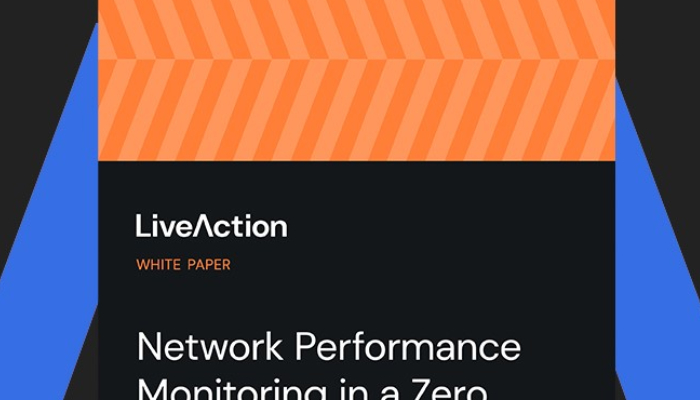A Zero Trust architecture (ZTA) is designed as if there is no traditional network edge, retiring the old castle-and-moat model of perimeter security.
In an era of evolving cyber threats and the increasing complexity of government networks, the adoption of a Zero Trust security model is gaining prominence in the federal space. Zero Trust challenges the traditional security paradigm by assuming that threats can emerge from both external and internal sources.
Never Trust, Always Verify
Zero Trust is a modern security model founded on the design principle “Never trust, always verify.” It requires all devices and users, regardless of whether they are inside or outside an organization’s network, to be authenticated, authorized, and regularly validated before being granted access.
With the rise of remote work, bring your own device (BYOD), and cloud-based assets that aren’t located within an enterprise-owned network boundary, traditional perimeter security falls short. That’s where Zero Trust comes in. A Zero Trust architecture (ZTA) is designed as if there is no traditional network edge, retiring the old castle-and-moat model of perimeter security.
By adopting a robust and Zero Trust-aware NPM approach, federal agencies can gain valuable insights and improve their overall security posture.
Zero Trust Network Intelligence
Visibility is the foundation of zero trust; you can’t protect what you don’t know. This is where LiveAction’s network intelligence solution comes into play. Network intelligence plays a crucial role in supporting Zero Trust security in the federal space by providing these key benefits:
Continuous Visibility:
LiveAction’s solutions offers real-time visibility into network traffic, allowing Federal agencies to monitor user and device activities continuously. This visibility is crucial for implementing the “never trust, always verify” principle of Zero Trust.
Anomaly Detection:
Identify unusual patterns or behaviors within the network. This is essential for detecting potential security threats or deviations from normal network behavior, aligning with Zero Trust’s emphasis on continuous monitoring.
Micro-Segmentation Monitoring:
Granular visibility into traffic within segmented zones. This capability enables organizations to monitor and control communications at a detailed level, supporting the micro-segmentation approach often associated with Zero Trust.
User and Device Authentication Integration:
Integration with identity management systems and user authentication processes is critical for Zero Trust. LiveAction supports such integrations and can help enhance the verification process and ensure that only authorized entities gain access to the network.
Policy Enforcement:
The platform can assist in enforcing access policies by monitoring network traffic to ensure compliance with the principle of least privilege. This helps organizations prevent users from exceeding their authorized access levels.
Traffic Analysis and Reporting:
Detailed traffic analysis and reporting capabilities provided by LiveAction’s visualization and reporting engine are essential for understanding network activities. This is valuable for implementing and enforcing access policies based on the principle of least privilege in a Zero Trust architecture.
Encrypted Traffic Analysis:
LiveAction’s platform supports the inspection of encrypted traffic by using Deep Packet Dynamics (DPD), a highly effective, non-invasive method, that allows admins to profile traffic characteristics and anomalies for risk without requiring decryption. This aligns with the heightened use of encryption in Zero Trust architectures.
Advanced Behavioral Analysis:
Leverage an AI-powered analysis engine, combining data collection, advanced behavioral analysis, predictive threat intelligence, and machine learning to detect threat actors and comply with security regulations.
Response and Remediation:
Quickly respond to security incidents. LiveAction’s platform can trace the source of anomalies, understand the extent of incidents, and facilitate remediation measures promptly.
Cloud and Edge Monitoring:
Extend monitoring capabilities to cloud and edge environments, helping to ensure that Zero Trust principles are applied consistently across all parts of the network infrastructure, including those outside traditional data centers.
Scalability and Flexibility:
Federal networks are complex and constantly evolving, and LiveAction’s platform supports high levels of flexibility and scalability. This ensures that the platform can adapt to changes in network architecture and support the growth of the organization’s infrastructure.
LiveAction’s Network Intelligence Platform
LiveAction offers solutions for network performance monitoring (LiveNX), packet capture and forensic analysis (LiveWire), and network detection and response (ThreatEye). In short, LiveAction delivers real-time network intelligence to monitor, troubleshoot, and help secure enterprise networks and applications no matter where they are, including on-premises, hybrid, SD-WAN, and cloud operations.

By adopting a robust and Zero Trust-aware NPM approach, federal agencies can gain valuable insights and improve their overall security posture. Network performance monitoring becomes a proactive tool, not just for ensuring optimal network health, but also for actively contributing to a strong and dynamic Zero Trust security architecture.


